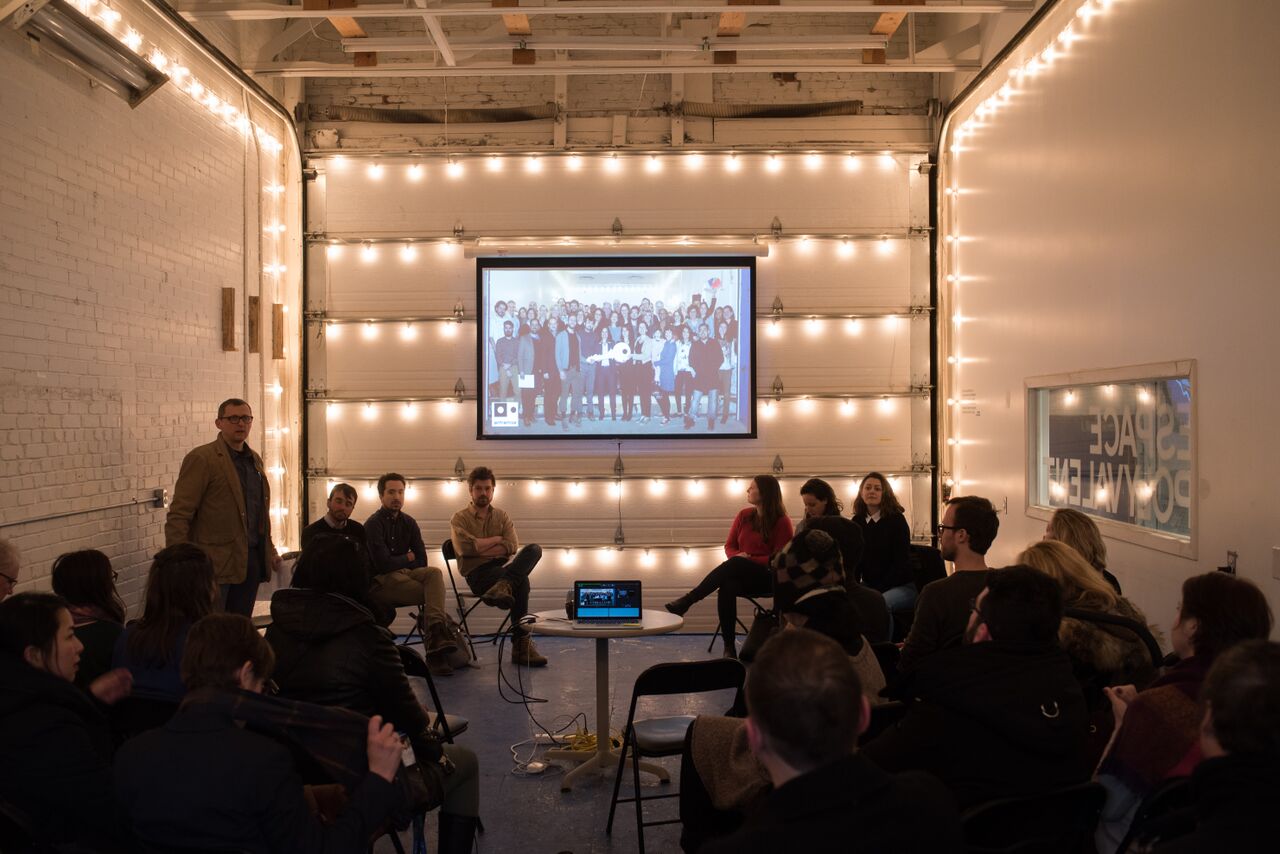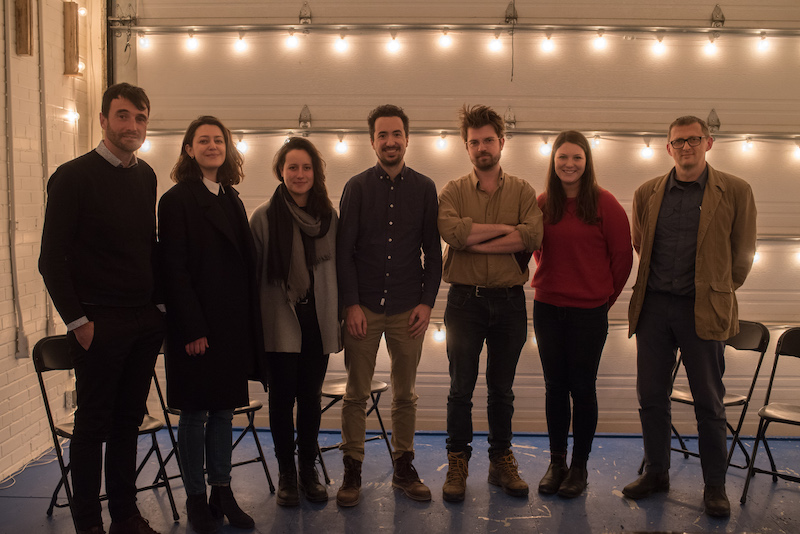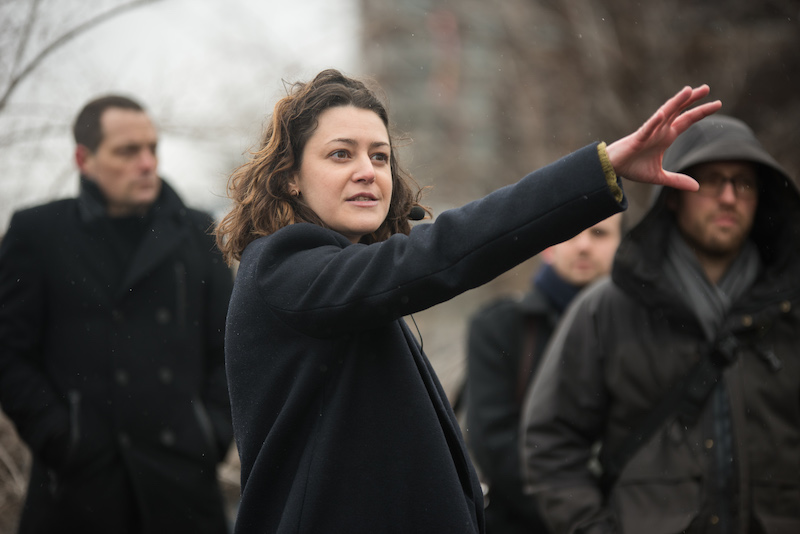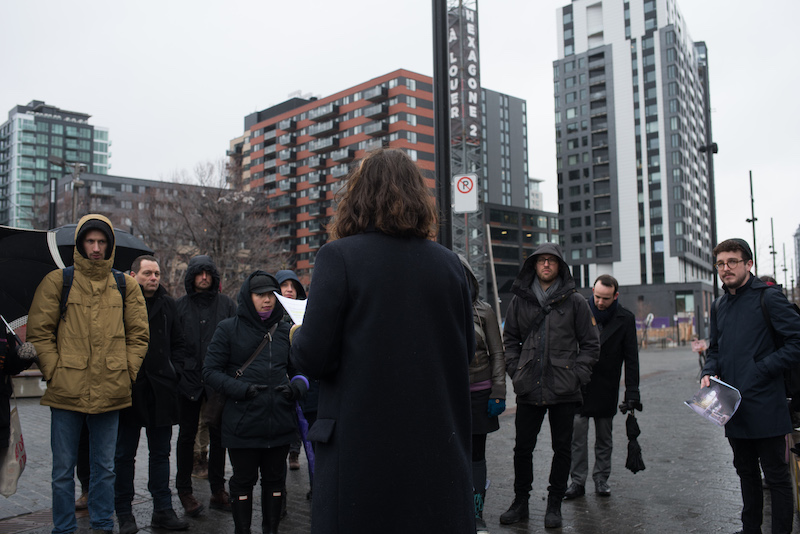
Experience and Innovation
Shaping Neighbourhoods: Experience and Innovation is a series of “conference-experiences” intended to entice communities of a neighbourhood to rediscover urban planning projects that exist there and to engage in conversation about community projects, university research, and the municipal initiatives currently happening.
This series offers a chance to reflect, develop, and construct a neighbourhood that is resilient and tuned in to its citizens. At each meeting, the participants will have the opportunity to visit a noteworthy place in the neighbourhood and converse with local organizations that are working toward rethinking their living environment. University researchers will also be a part of the discussion, relating and comparing their own research to actions taking place locally.
Move
June 4, 2019 | Dendrites Sculpture (5:15 PM- 7:30 PM)
Beauty is a fundamental dimension of the public space and raises several questions: how do citizens feel and express it? Are these equal to beauty? What's the role of artists, municipalities, organizations, technicians and architects in creating and raising awareness of this beauty? Should it always be preceded by a clear intention, or is urban poetry born more authentically in spontaneity, when the patina of time arises, for example, on a heritage building and turns it into ruin? Is there a link, finally, between innovation and beauty?
Panelists
- Academic Supervisor : Prof. Guillaume Ethier (UQAM)
- Michel de Broin (Artist, Dendrites)
- François Cardinal (Editor-in-chief, La Presse; Author, Et si la beauté rendait heureux)
- Caroline Andrieux (Founder and Artistic Director, Fonderie Darling)
- Aliki Economides (Assistant Professor, U. Laurentienne)
- Cecile Martin (Artist and architect)
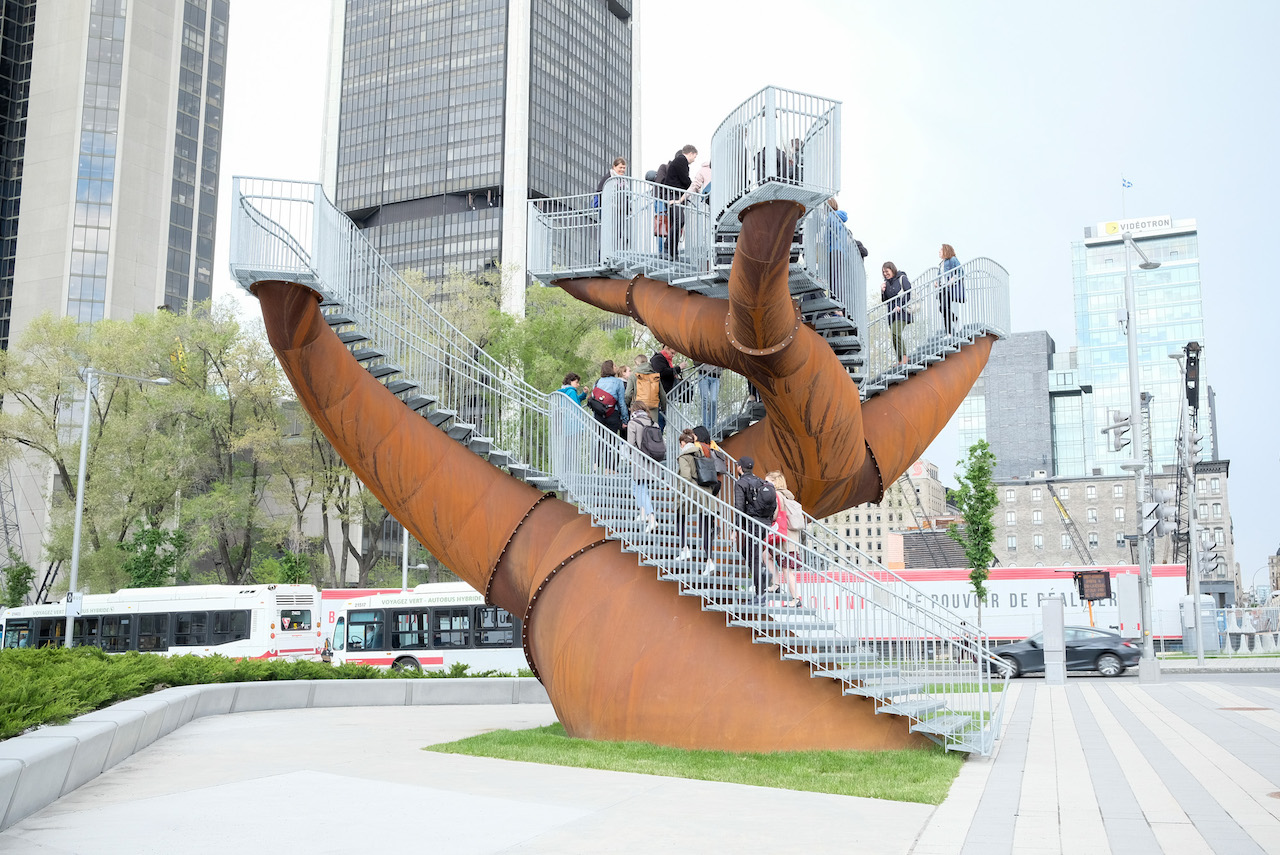
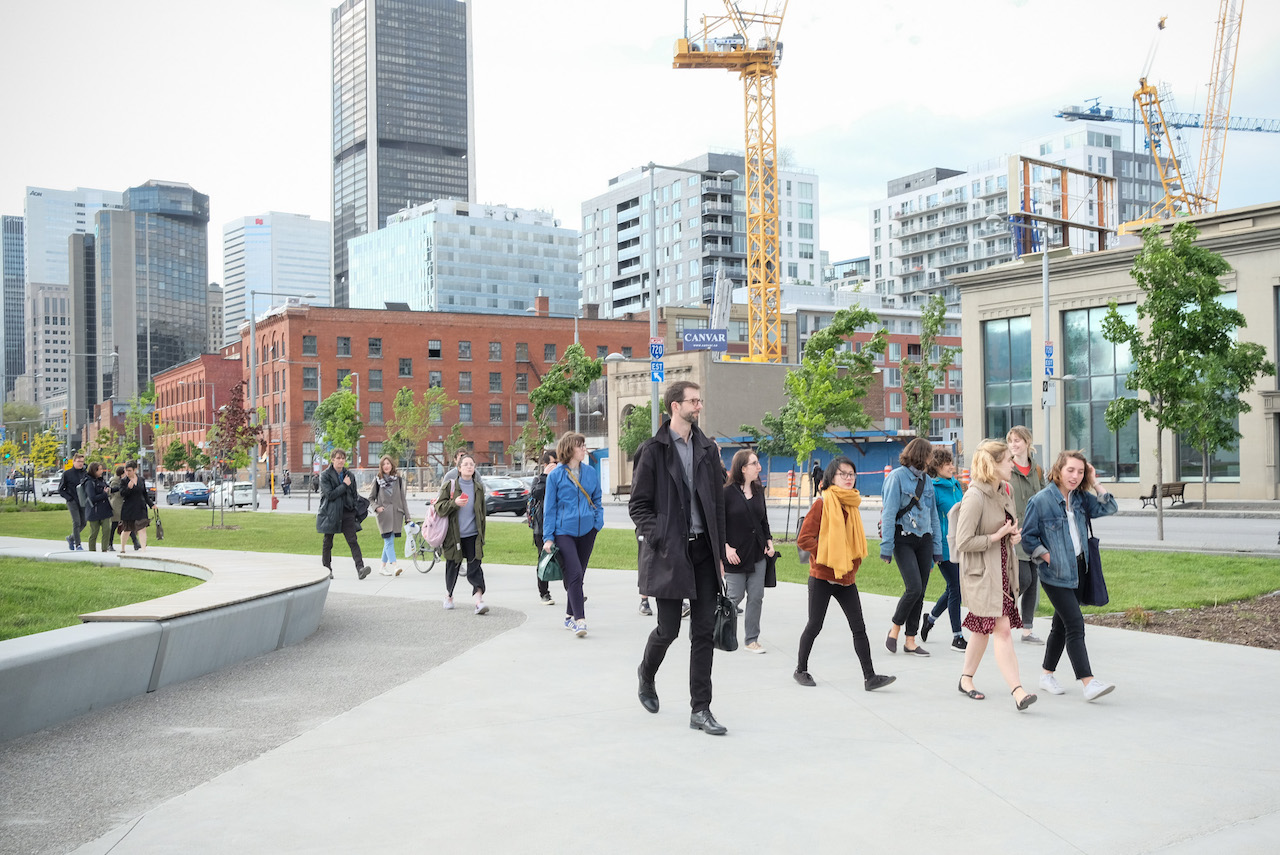

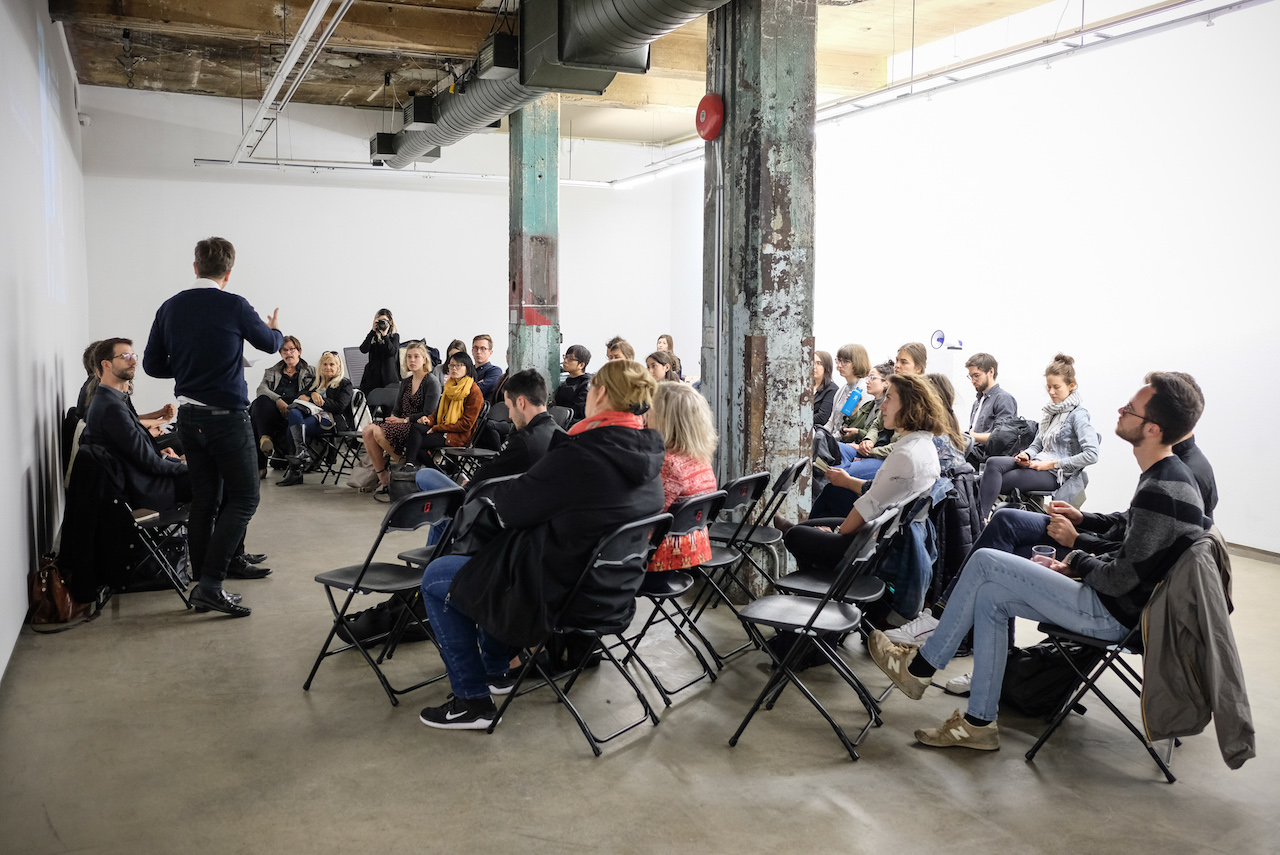
Communicate
May 7, 2019 | DARE-DARE Centre (5:15 PM- 7:30 PM)
The questions associated with communication are at the heart of urban issues. Development projects within a neighborhood, whether they concern the neighborhood in a global way or from a micro perspective (specific projects, temporary projects, etc.), necessarily raise the question of communicative dynamics between the different sectors (public, private, associative, citizens, etc.). Beyond a "traditional" approach of the transmission of information from a source to a target audience, communication is also conceived in a broader, strictly social sense, engaging a plurality of actors mobilizing different postures. In this way, it brings together points of view, promoting discussion in the public space. In this respect, its upgrading conditions represent a central issue in establishing a democratic framework for citizen participation and ownership.
Panelists
- Academic Supervisor : Prof. Christian Poirier (INRS)
- Imen Ben Jemia (Resident Scholar, CIRM)
- Geneviève Massé, (Member, DARE-DARE Centre)
- Nicholas Dawson (Author and Doctoral Student, UQAM)
- Hanieh Ziaei (Art Sociologist and Director, Georges-Vanier Cultural Center)
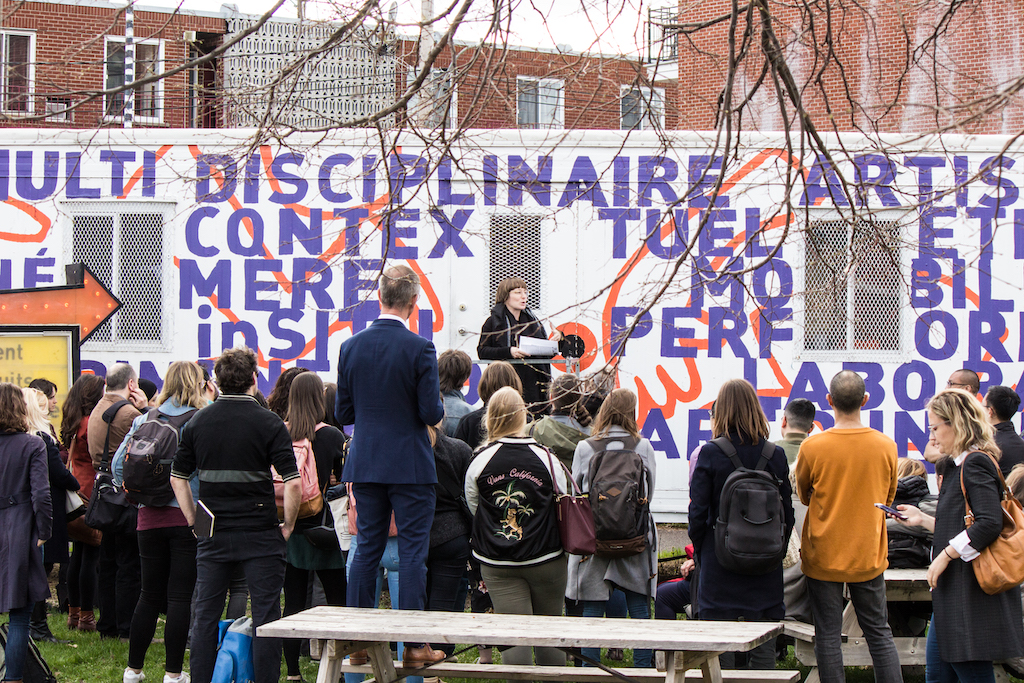
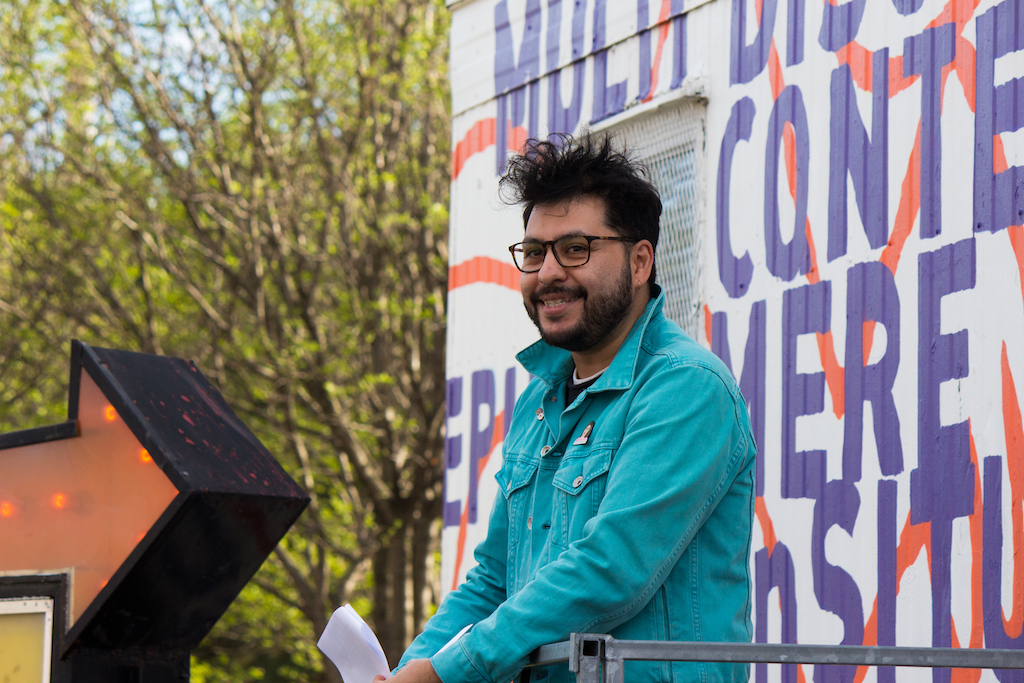
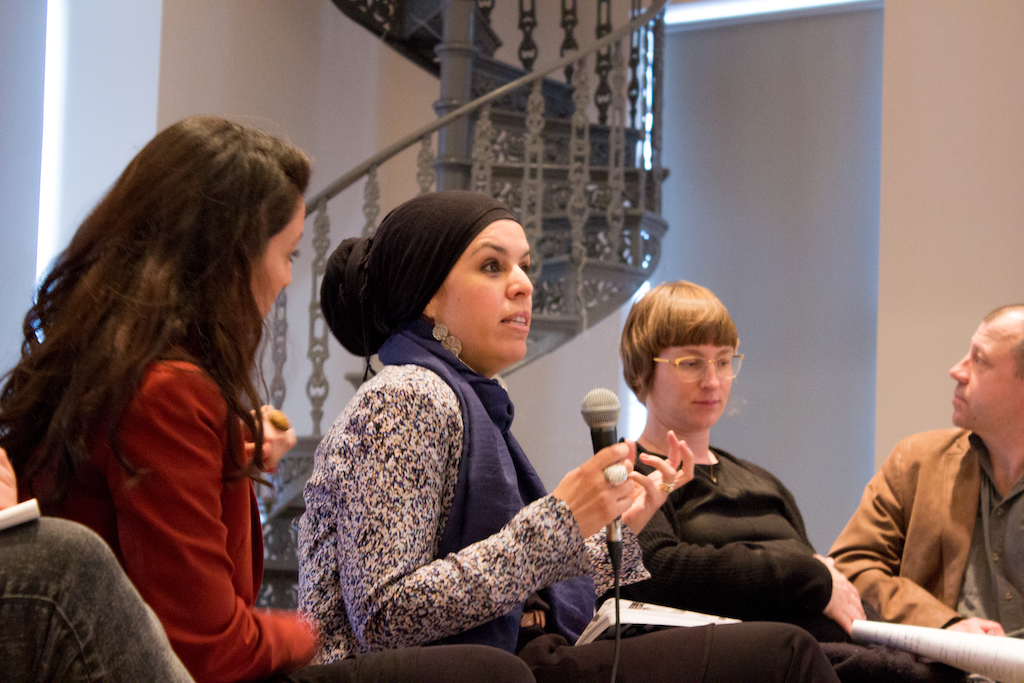
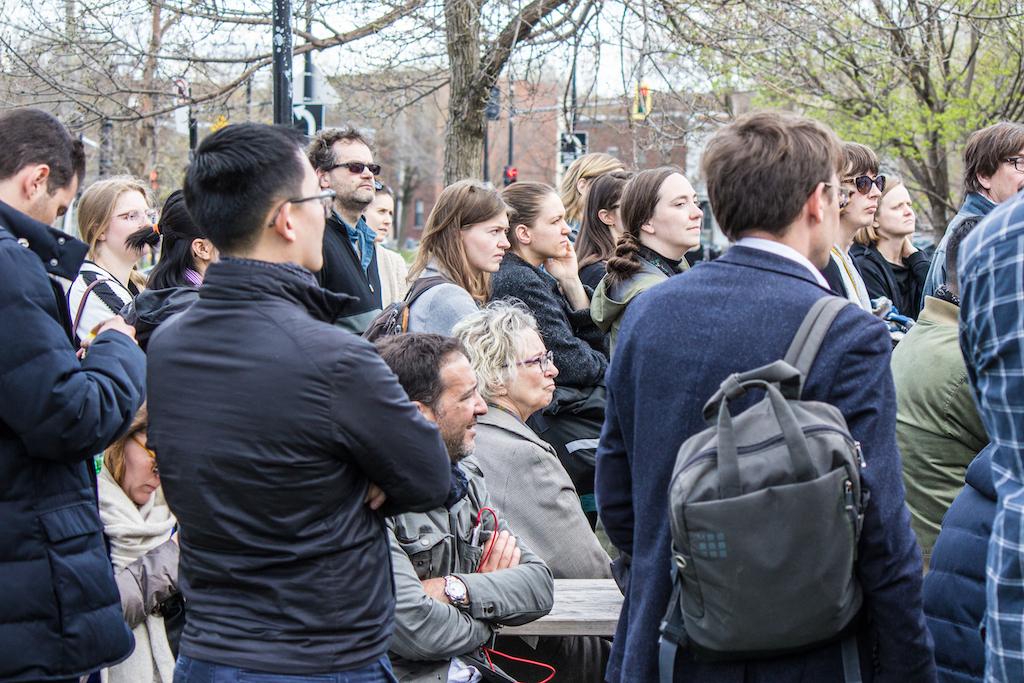
Belong
June 13, 2018 | Station F-MR
Have you heard about civic assets? Some buildings play a central role in the collective lives of their communities. Think of schools, community centres, hospitals and places of worship which contribute people’s sense of belonging. Many of these sites of belonging are today in need of renewal. What strategies can be developed to enable civic assets to flourish in the face of rapidly changing urban landscapes?
Panelists
- Frédéric Morin-Bordeleau (Co-founder, La Station F-MR et MR-63)
- Gabriela Jakubovits (Mobilization officer, Coalition de la Petite-Bourgogne / Quartier en santé)
- Vanessa Muegler (Project coordinator, Gestion Immobilière Quo Vadis)
- Jonathan Rouleau (Associate researcher, Laboratory of Urban Culture - The Institute for the Public Life of Arts and Ideas)
- Karl Dorais Kinkaid (Urbanist and project manager, L'Enclume- Atelier de développement territorial)
- Facilitator: Hoi Kong (Axis Director, CIRM; Professor, Peter A. Allard School of Law)
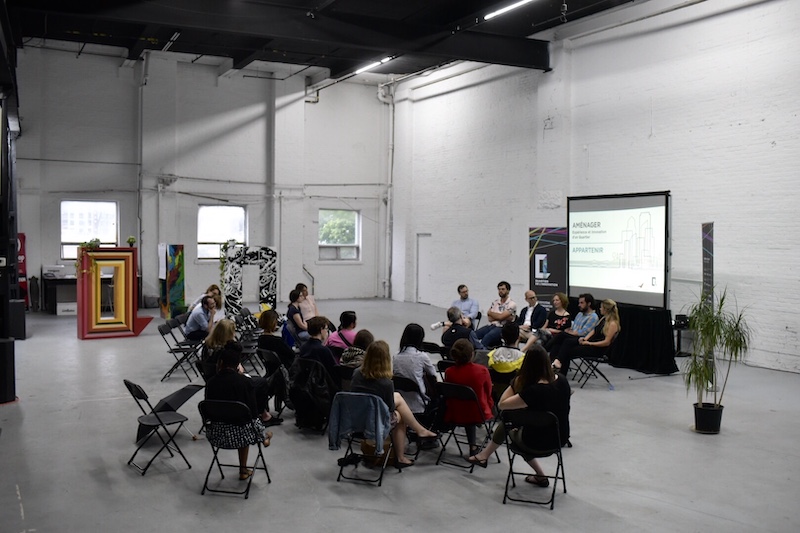
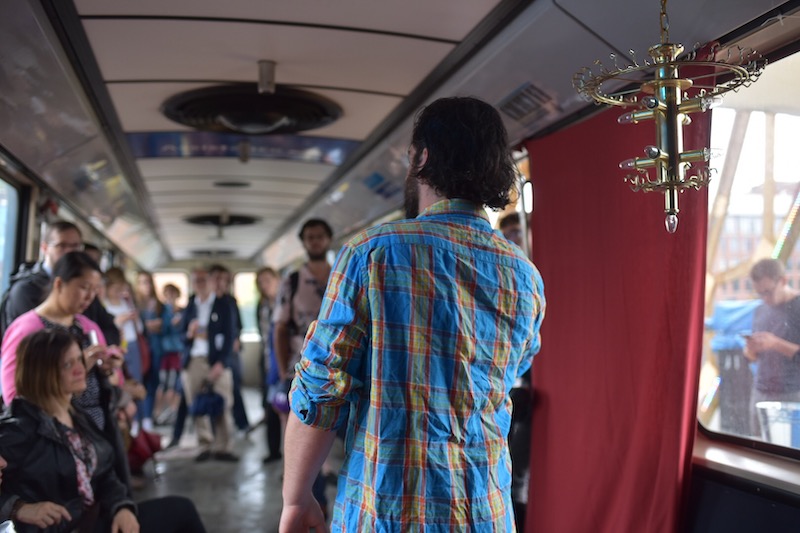
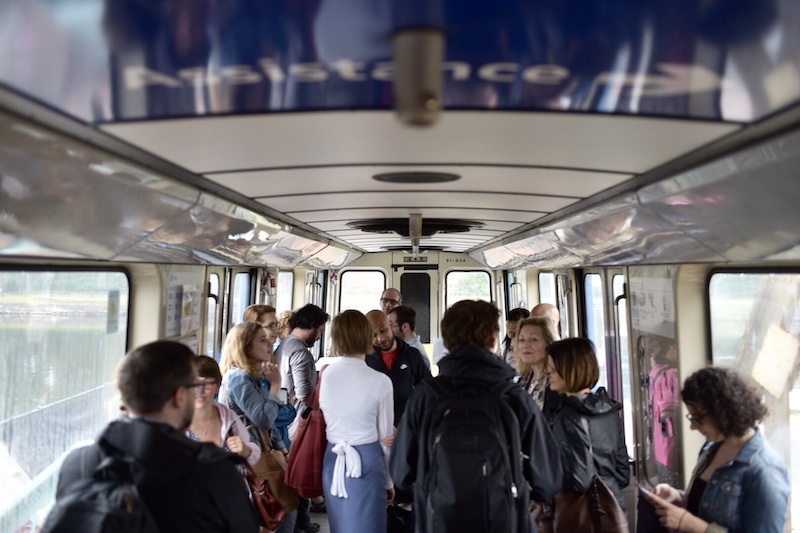
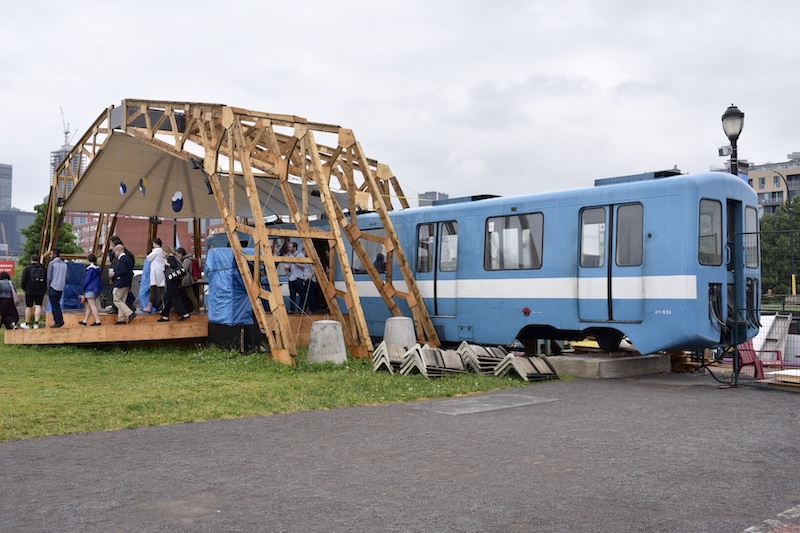
Inhabit
June 5, 2018 | Projet Young | Griffintown
Between real estate speculation, rapid urbanization trends and the social needs of its population, a city is under tremendous pressure on the issue of housing. What are the innovative practices that a municipal administration, real estate developers or social economy enterprises can adopt regarding the development of living spaces? What kind of mix provides the best social and economic diversity for healthy communities?
Panelists
- Mr. Erwan Poënces (Development agent, Bâtir son quartier)
- Mr. Michel Saint-Cyr (Special projects advisor, Habitations La Traversée)
- Mr. Bertrand Fouss (Co-Founder and President, Solon Collectif)
- Mr. Jonathan Lapalme (Co-Founder, Entremise and Projet Young - Laboratoire transitoire)
- Ms. Laurence Vincent (Co-President, Prével)
- Ms. Nancy Shoiry (General manager, Société d’habitation et de développement de Montréal)
- Facilitator: Nik Luka (Associate Professor, Peter Guo-hua Fu School of Architecture, McGill University)
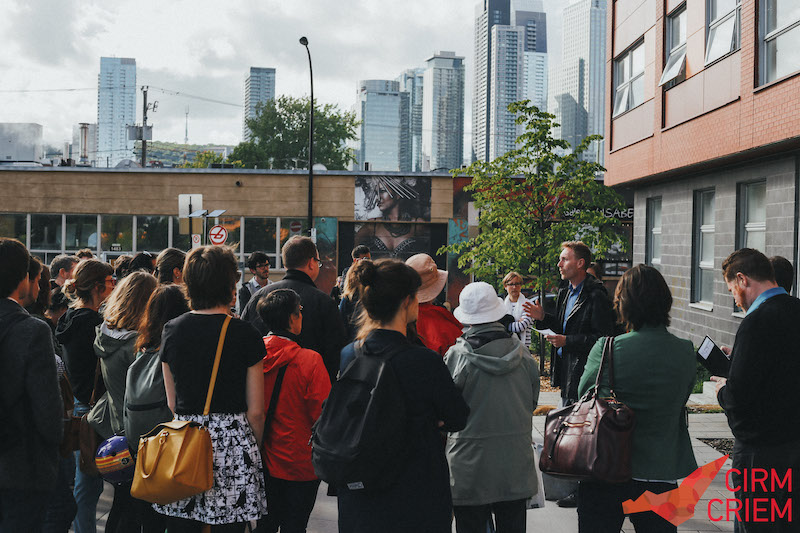
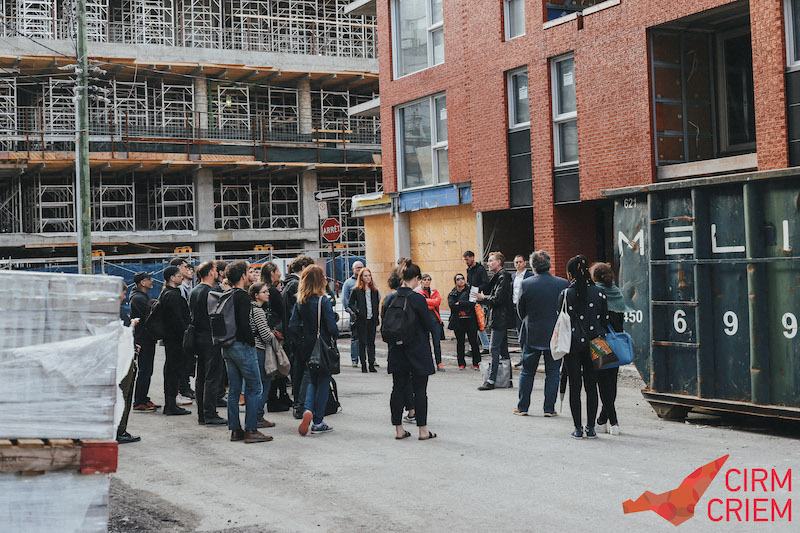
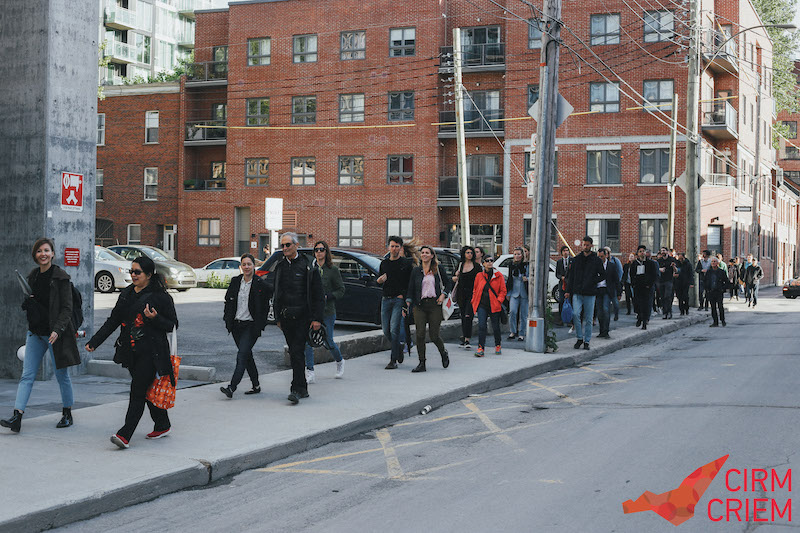
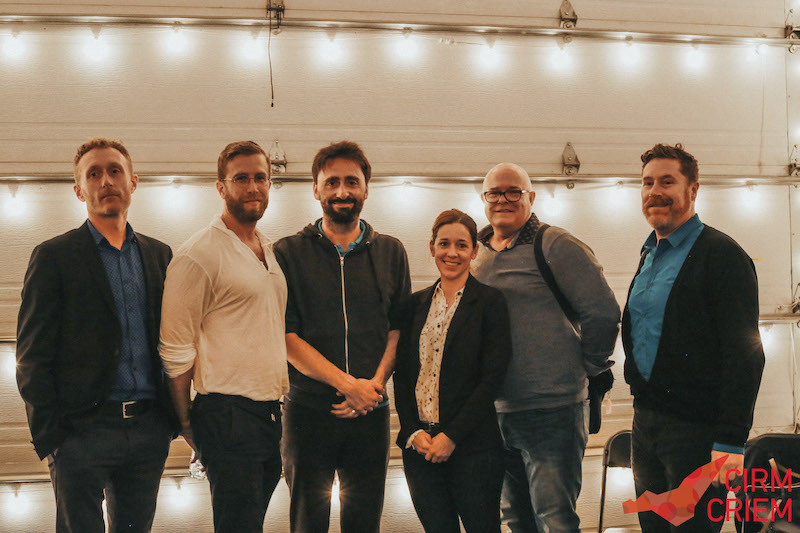
Build
April 17, 2018 | Tour d'aiguillage Wellington | Projet Young
Why has place-making become necessary? Most places in most cities developed organically over time, as people and builders appropriated space, modelled it and gave it character. In this era where buildings and neighbourhoods are built and torn down, rethinking architecture has become essential.
Panelists
- Ms. Pauline Butiaux (Vice President and treasurer, Manoeuvres / Tour d'aiguillage Wellington)
- Mr. Gorka Espiau (McConnell Foundation Professor of Practice / CIRM)
- Mr. Philémon Gravel (cofounder, Director of urban planning, Entremise)
- Mr. Jonathan Cha (urban planning and urbanism; urbanist; landscape architect; heritage consultant; Urban planning consultant, Parc Jean-Drapeau; lecturer UQAM-UdeM; cofounder, MTL ville en mouvement; codirector Le Virage MTL)
- Ms. Carla Rangel Garcia and Ms. Marie-Philip Roy-Lasselle (Projet Mont Réel and ConstructLab Berlin
- Facilitator: Richard Shearmur, Director of the School of Urban Planning, McGill University
